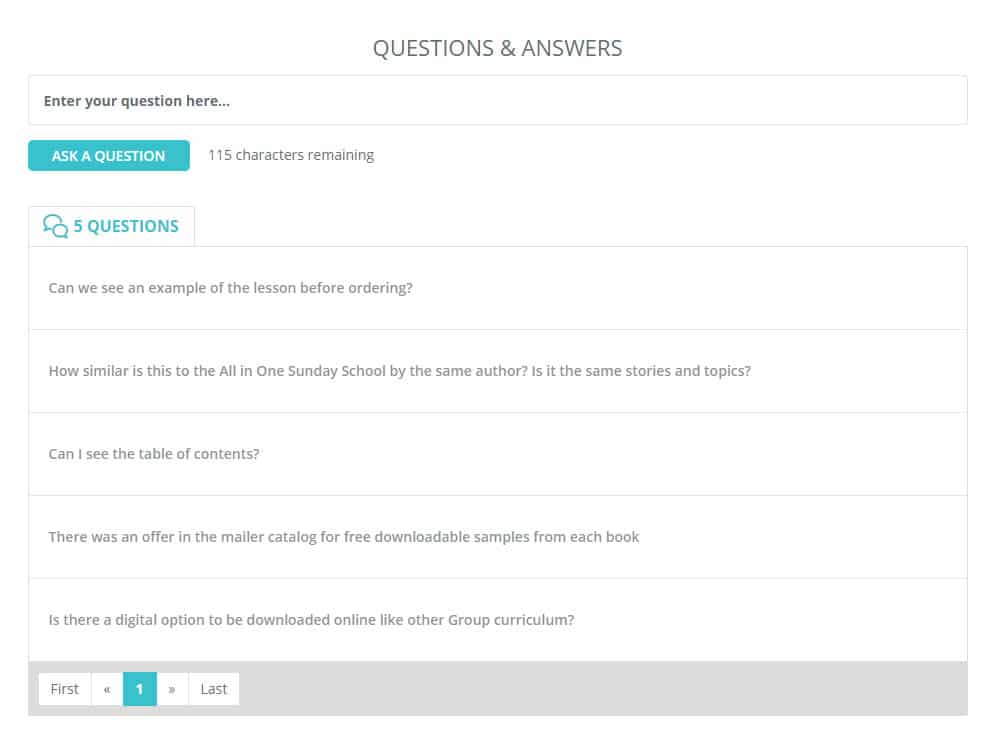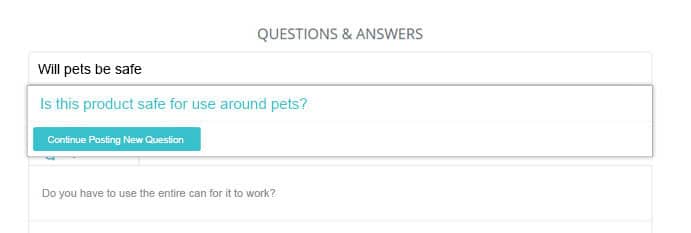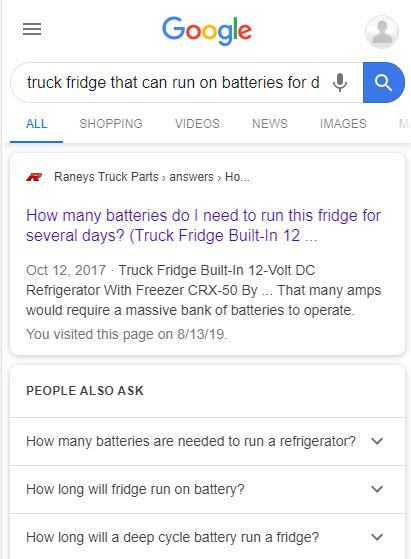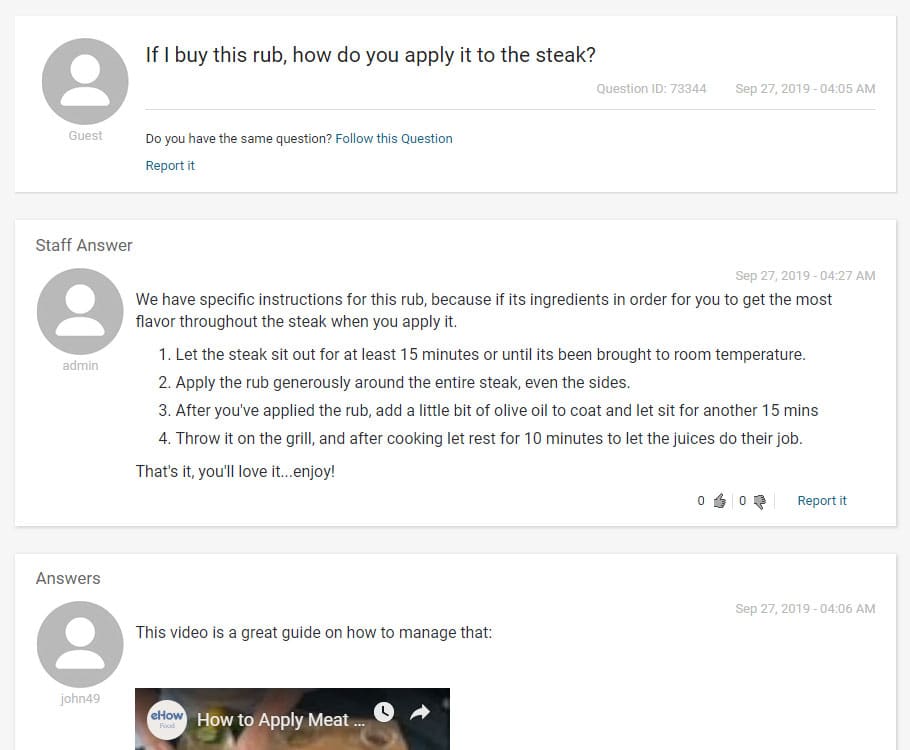Ecommerce Customer Service Software Recommendations

When you’re looking to find ecommerce customer service software, there are several key features that will determine whether your solution performs in a “Ho Hum” manner or whether it becomes an integral part of your ecommerce site’s success. In this post we’ll explore some of those key features that you should be looking for and why they are important for the success of your store. When you’re looking for potential solutions to integrate into your storefront, consider if the solutions that your looking for contain the following features. If you already have ecommerce customer service software or a knowledge base, consider if its the best solution to accomplish your business goals or can be integrated with another solution that ensures these things are covered.
Product Page Q&A Integration
When you’re running an ecommerce store, most of the customer service questions that you’ll field will likely be related to the products you’re selling. Your product details page is the most visited page on your website and the most natural for your users to engage with your business, why wouldn’t you have customer service software and content integrated seamlessly into those product pages so that your content can assist in converting sales? It’s important that your knowledge base has APIs or widgets that allow you to integrate at least product Q&A capabilities right into your product page…see an example here:

What that will do is ensure that your the Q&A content generated from your previous customer service inquiries builds a useful knowledge base that gets distributed within your product pages and can help convert new sales. Answerbase customers boast that up to 75% of customers who ask questions through the product page convert to a sale. To have your customer questions being answered, but not effectively distributed to impact sales doesn’t make sense.
Duplicate Question Recognition and Management
When your customers are engaging your customer service software and knowledge base, either on the product page or through the help or knowledge base section of your website, you want to make sure that it has the ability to effectively recognize if the information they’re seeking out is already available. The questions that the user inquires about should be compared automatically to your existing database of previous customer service inquiries and relevant matches should be presented through a predictive auto-suggest capability as the text field is being populated.

If this is done well, this should serve both your customer and your business well, since customer service questions that have already been answered should be addressed automatically with your existing content through the software. From the customer’s standpoint, they get a great answer to their question immediately without having to wait for a response via email or chat.
Studies show that 71% of customers prefer self-help that don’t require them to interact with a person. Give them that option, its preferred by them and saves you time and money if done well. Answerbase customers see that between 60-75% of questions posed by customers are answered automatically by existing Q&A content that has already been answered in the past.
SEO Friendly Landing Pages for Content
The customers who are engaging your website and asking you customer service questions are not the only people who have questions about the products you sell. Guess who else does? Potential customers are asking those same questions through Google and other search engines and they are ripe for purchasing the products that you sell. This gives you a great opportunity to turn your customer service content on your knowledge base into content marketing material that can actually help you acquire new ecommerce customers!
See an example of how this works below, as a customer looking for a specific product is introduced to content from an ecommerce merchant’s knowledge base as the first organic result:

The right customer service software should have pages that are optimized for search right out of the gate, with SEO-friendly slugs, tagging, page titles, etc. An example of an ecommerce store doing this well is Epestsupply, where they have quadrupled the organic search traffic to their site and doubled their overall traffic by growing a valuable knowledge base of content…simply responding to customer questions (self-serving plug…they use Answerbase to power that knowledge base). This is a huge opportunity to both support your customers while also creating a new customer acquisition channel in the process. Answerbase has studied customer results where the knowledge base content that is created simply by addressing customer questions can turn into one of their most productive channels. What we see is that new customers acquired through customer service content has an average Lifetime Value (LTV) of up to 2x more than the overall visitors from Google, and up to 6x more than those coming from Facebook. You can save costs on customer support while in the same breath increase your sales and conversions, now that’ something to get excited about!
Support Multiple Content Formats
Your customers will have different preferences on how to be serviced as customers, and your customer service knowledge base of information should be communicated in formats that play well to the products that you sell, generational considerations, and even down to the personal preferences of your customers (which, conveniently, will service many). Ensure that your knowledge base of customer service content not only supports text but also allows you to post videos, images, and documents to support their informational needs. See an example of how this can play out to most effectively service a customer’s request for information related to a product…

This will help ensure that your content addresses their specific needs with the most appropriate format(s).
Partner & Customer Community Features
This section is most relevant if you want to consider getting manufacturers, influencers, partners, service providers, or even other customers involved with creating valuable customer service content that you own which can benefit your business. It’s not uncommon to have at least a small group of partners that you trust in that process for at least some of the content formats you support…so ensure your knowledge base software at least offers the capabilities even if you just want to test it.
A good knowledge base will not only have community features, but also allow you to identify specific groups of users and allocating special permissions to those groups. For example, if you want to open up answering of customer service questions but only to select customers, select partners or service providers, etc. You can get the right mix that is comfortable for your business, and ensure that your customers are showered with the best content from the best possible sources within your network. Your ecommerce customer service software should allow your content to visually distinguish the source of the content and make that clear to end users. See an example here on how answers from a company’s staff are specifically highlighted and pinned at the top. See how this example distinguishes between staff answers and answers submitted by everyone else…

A good ecommerce customer service solution should have the ability to scale up and down these features as you’d need, whether you choose to open capabilities up to only a select group of influencers….or whether you’d want a full blown community with user profiles, gamification, etc.
It’s common to give customers who have purchased a product the ability to post answers to new questions about that product, but on the other side of that some ecommerce businesses prefer not to have to deal with time or cost of moderating user generated content. There are pluses and minuses to everything, so you should weigh those out and determine what makes sense for your business…but don’t get stuck with a knowledge base that doesn’t give you the option to enable these features at any time.
We hope this post has been helpful as you consider what knowledge base and customer service software to use for your ecommerce store. If you have any questions or would like a consultation to speak about the goals of your ecommerce site, you can Contact Us and we’ll have an ecommerce specialist help point you in the right direction.
